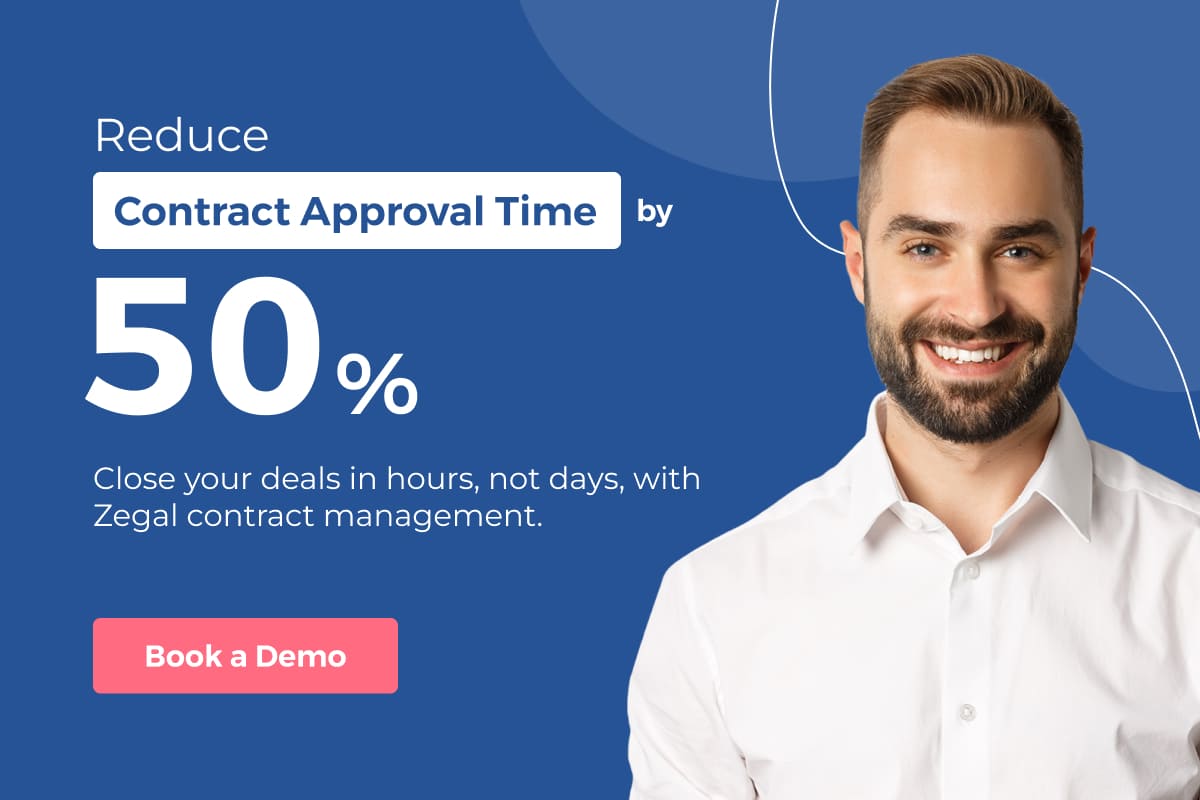How to generate a Supply of Services Agreement
Supply of services agreement FAQs
The Supply of Service Agreement is a legal document that defines the obligations and rights of the customer and the supplier to provide a specified service to the customer.
The purpose of having a supply of service agreement is to give a clear understanding of both parties’ responsibilities, legal rights, and obligations and to ensure that the specified services provided by the supplier are delivered to the customer accordingly.
Part of the supply of service agreement deals with any potential dispute between the supplier and the customer regarding the supply of service. It will state the laws or the courts authorised to settle any disputes related to the agreement.
The service agreement will also set out provisions related to the renegotiation or renewal of the agreement and the termination of the agreement.
What to include in supply agreement
Laws or regulations usually regulate agreements for the supply of services in terms of their provisions since it is a tool that contributes to the economy.
However, all supply of service agreements should have the key elements:
Title of the supply of services contract:
Every legal document should have a headline or a title to differentiate it from any other similar legal documents that can be subject to regulations. In this case, the title of the supply of service agreement should be “Agreement for Supply of Services” or any other similar title that indicates that this legal document is a supply of service agreement.
Definitions/interpretation of the service agreement:
This section of the supply of services agreement deals with interpreting the frequently used words or items in the agreement to ensure clarity and understanding of any term.
Information about the parties:
This agreement is an exclusive agreement between the supplier and the customer, so both parties should provide their name and any necessary personal information regarding this agreement, such as their addresses, and identify the supplier and customer.
Description of the service(s) provided:
The section on the description of the service(s) provided is central to the Supply of Services Agreement, serving as the basis for establishing both parties’ expectations and obligations.
It outlines in clear, detailed terms what specific services will be provided by the service provider to the client. This often includes a Statement of Work (SOW) or a detailed list or schedule, which may cover project phases, deliverables, deadlines, and quality benchmarks.
The description can also include methodologies, tools, or platforms that will be used in the course of service provision. This section aims to be as comprehensive and unambiguous as possible to minimise misunderstandings and set clear parameters for what is to be delivered.
It might also specify what is not included in the scope of services to eliminate any assumptions or ambiguity. Understanding this section is crucial for both parties as it affects pricing, timelines, and other contractual obligations.
Any changes to this section usually require a formal amendment to the agreement, often involving additional negotiations and potential adjustments to cost, timelines, and other terms.
Date/Duration of the supply agreement:
Including the dates of the supplied services to the customer and the duration of how long the supplier will provide them is an essential piece of information to clear up any future disputes.
Pricing and payment information:
This section outlines the charging, invoicing, payment, and its mechanism or process. This section should include any VAT, taxes, additional expenses, and interest rates. If there are any pricing adjustments in the future, such as annual increases, for example, it should be stated in this section.
Responsibilities and obligations of the service provider:
The section outlining the responsibilities and obligations of the Service Provider is a cornerstone of the Supply of Services Agreement. It defines the scope, quality, and conditions under which services are to be rendered.
This could range from delivering a particular product, implementing a software solution, or providing ongoing maintenance. The service provider must usually meet or exceed specified quality standards, often defined in industry norms, customer requirements, or specific Key Performance Indicators (KPIs).
Additionally, the service provider is commonly responsible for complying with all relevant laws and regulations, including data protection laws, if applicable.
The agreement might also set forth requirements for professional qualifications, insurance coverage, and other liabilities. In some cases, provisions may outline the service provider’s obligation to rectify any service deficiencies within a particular timeframe, as well as potential penalties or remedies in case of non-compliance.
This section aims to establish the service provider’s expectations, thereby creating a framework for accountability and performance measurement.
Failure to meet the responsibilities and obligations outlined can result in various penalties, including termination of the agreement.
Dispute process a supply of services agreement:
The dispute resolution process in a Supply of Services Agreement serves as a structured mechanism for settling disagreements or conflicts that may arise between the parties involved.
Typically, the agreement outlines a tiered approach to dispute resolution, beginning with informal negotiations between the parties to reach an amicable solution.
If that fails, the next step may involve mediation, wherein a neutral third-party mediator assists the parties in finding common ground. Should mediation not resolve the issue, the agreement might specify that the parties are to proceed to arbitration or litigation.
Arbitration is usually a faster and less formal process than going to court, but its outcomes can be binding and final, depending on the terms of the agreement. The agreement’s governing law and jurisdiction clauses indicate which laws will apply to the dispute and where legal proceedings must occur.
By clearly defining the dispute resolution process, the agreement aims to provide a predictable and fair pathway for addressing and resolving conflicts, thereby reducing uncertainties and risks for both parties.
Confidentiality in a supply of services agreement:
The confidentiality section of a Supply of Services Agreement plays a critical role in safeguarding sensitive information that either party may share or generate throughout the contract term.
This section typically outlines the types of information considered confidential, each party’s obligations to protect that information, and the specific circumstances under which such information may be disclosed to third parties.
Additionally, it is common to refer to a separate Nondisclosure Agreement (NDA) within this section if one exists or to incorporate key NDA terms directly into the Supply of Services Agreement itself.
The NDA is an ancillary but often essential legal document that provides an additional layer of protection for confidential information, detailing penalties for unauthorised disclosures and specifying the duration of confidentiality obligations, which may extend beyond the termination of the services agreement.
By addressing confidentiality explicitly and referring to an NDA, both parties reinforce their commitment to protecting sensitive data and mitigating the risks associated with unauthorised disclosure.
Termination or discontinuation of services:
This section sets out the parties’ respective rights to terminate the agreement, which can be done when the other party commits a material breach of the agreement, repeatedly breaches the agreement, or is subject to one of a number of listed events associated with financial instability.
Other elements that should be Taken into consideration are usually related to the usage of any intellectual property, third party rights, notices, and remedies for any violation of the agreement terms or termination.
Top 5 issues to look out for in a supply of goods and services agreement template
- Specifics of the scope of goods and services: Avoid ambiguity and have the details set well. E.g., avoid terms such as “and others” and “among few”.
- Liability clauses: These are grey areas, and failure to look at them closely could result in indirect losses. Sift through them.
- Representations / Warranties (R/W): One should ensure that the primary obligations are well covered within the range of R/W’s.
- Indemnities: Go through the indemnity clauses carefully and ascertain that mentioning events is within your control. Evaluate if the losses are bearable or coverable.
- Dispute resolution: While it is better to resolve issues amicably and quickly, things can, at times, get out of hand. There should be clear measures such as consultation, mediation, etc.

Contractor VS. employee
You can engage in the service of contractors and employees to get a job done. However, the two are pretty different from one another.
Contractors are an excellent hire for projects requiring a specific skill set. It is comparatively inexpensive as you do not always need an expert on your payroll.
On the other hand, employees are great for long-term work and projects as they will have a good idea of it from the beginning and development until the end.
When do you need a supply of services agreement?
A Supply of Services Agreement is generally needed when one party is providing a service to another, and there are specific terms, conditions, and obligations that both parties want to formalise in writing. Here are some common situations when a Supply of Services Agreement is advisable:
- Business-to-Business Services: When one business provides services to another, such as IT support, consultancy, or marketing services, it is essential to have an agreement to clarify the scope and terms.
- Long-Term Relationships: For ongoing, long-term relationships where services are provided over an extended period, a formal agreement helps to set expectations and procedures for the duration of the relationship.
- Complex or High-Stakes Projects: If the project is complicated or involves significant risk, financial or otherwise, a formal agreement can help protect both parties.
- Handling of Sensitive Information: If either party will have access to confidential or proprietary information, a Supply of Services Agreement can incorporate confidentiality clauses or refer to a separate Non-Disclosure Agreement to protect such information.
- Regulatory Compliance: Certain industries have specific regulations regarding the provision of services, and a formal agreement can help to ensure that all regulatory requirements are met.
- Subcontracting: If the service provider plans to use subcontractors, the agreement can specify this and outline the responsibilities and obligations of all involved parties.
- Payment Terms: When the service involves payment—either a one-time fee, a retainer, or an ongoing payment schedule—a Supply of Services Agreement can specify these terms clearly to avoid future disputes.
- Legal Requirement: In some jurisdictions or industries, a formal written agreement may be legally required for certain types of services.
- Customer Requirement: Sometimes, the customer or client may require a formal agreement as part of their own procurement or governance process.
- Dispute Prevention: A well-crafted agreement can serve as a reference point for resolving possible misunderstandings, thereby avoiding costly legal disputes.
A Supply of Services Agreement can significantly reduce risks, provide legal protection for both parties, and provide a clear guideline for the scope, quality, and terms under which services will be provided.
Given the importance of this document, it is often advisable to consult legal professionals like Zegal for drafting and reviewing the agreement.
What are some sectors that use a supply of service agreements?
Supply of Services Agreements are widely used across various industries and sectors to formalise the terms and conditions under which services are provided.
Here are some sectors where these agreements are commonly employed:
- Information Technology (IT): IT consulting, software development, cloud services, and systems integration often require detailed service agreements to outline the scope, quality, and security measures involved.
- Healthcare: Medical service providers, telehealth platforms, and specialised consultants often use these agreements to specify terms like patient confidentiality, scope of services, and billing procedures.
- Marketing and Advertising: Agencies often enter into service agreements with businesses for advertising campaigns, digital marketing, and media placement, specifying deliverables, timelines, and metrics for performance.
- Consulting: Business, financial, and management consultants use these agreements to define the nature of their advisory services, deliverables, and fees.
- Construction and Engineering: Service agreements can specify the roles and responsibilities of contractors, subcontractors, and engineers in projects, detailing things like design responsibilities, quality standards, and deadlines.
- Logistics and Transportation: Companies offering shipping, freight, and logistics services often use these supplier agreements to outline terms like delivery timelines, responsibilities for loss or damage, and payment terms.
- Real Estate: Property management services, real estate brokerages, and other related services often require agreements to specify the scope of work and commission structures.
- Education and Training: Educational service providers, such as online course platforms or corporate training consultants, often use service agreements to clarify terms around content provision, quality standards, and pricing.
- Hospitality: Service agreements in this sector may involve arrangements for catering, event planning, or facility management.
- Financial Services: Firms offering accounting, financial planning, or investment advisory services often require detailed agreements outlining the nature of the services, disclaimers, and compliance with regulatory standards.
- Legal Services: Although not technically the same as a Supply of Services Agreement, law firms often use retainer agreements that serve a similar purpose in defining the scope of legal services to be provided.
- Environmental Services: Companies offering waste management, recycling, and other environmental services may use these agreements to specify the terms of their services.
- Utilities: Companies that supply water, electricity, or natural gas also use service agreements to clarify terms like billing, maintenance, and service interruptions.
- Outsourcing and Offshoring: Companies that outsource various functions like customer support, data entry, or manufacturing may enter into service agreements with vendors in other countries.
- Public Sector: Government agencies often enter into service agreements with private sector companies for various services like IT support, construction, and consultancy.
The application of Supply of Services Agreements is quite broad, and the specific terms can vary greatly depending on the sector and the complexity of the services being offered.
Supply of Service Agreement template
A Supply of Service Agreement is a contract between a supplier and a consumer based on pre-specified terms.
The primary purpose of having this agreement is to give a clear understanding of the responsibilities, legal rights, and obligations of both parties to ensure that the specified services provided by the supplier are delivered to the customer accordingly.
Create one now with Zegal.
Stay compliant with the Zegal template library
Zegal legal template are meticulously crafted with the precision of AI and the expertise of seasoned human lawyers, providing a unique blend of speed and reliability.
You can trust that Zegal agreements are legally sound and fully compliant with current regulations.
Whether you're a startup, SME, or a larger enterprise, Zegal contract management will automate and speed up your legal processes.
Using Zegal will reduce risk, save money, and improve efficiency. Let us take care of the paperwork so you can focus on running your business.
Don’t compromise on speed or compliance. Stay secure, compliant, and efficient with Zegal.






